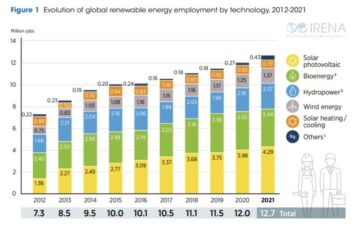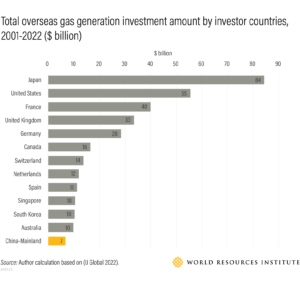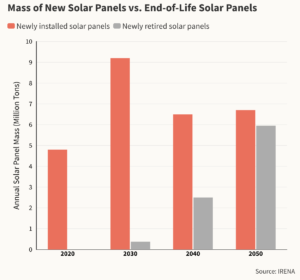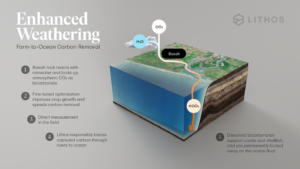
It appears that little progress was made in the latest meetings toward a global treaty to end plastic pollution.
“The majority [of UN member nations] had the best intentions and worked to find commonalities among diverse global perspectives, but the entire process was continually delayed by a small number of member states prioritizing plastic and profit before the planet,” said Erin Simon, vice president and head of plastic waste and business at World Wildlife Fund (WWF) US.
The third of five intergovernmental meetings, known as INC-3, wrapped up in Nairobi on Nov. 19. The process that started with a United Nations Environment Assembly resolution in March 2022 is more than halfway to the finish line. So far, multi-stakeholder forums, policy briefing notes and a “zero draft” (that GreenBiz covered here and here) have left many questions unanswered.
Here’s what you need to know about INC-3 from experts who were there.
What’s the scope?
If you think it’s outrageous that we haven’t yet settled on the scope of the global plastics treaty, you are not alone. According to the WWF, all countries involved in the negotiations agreed initially to a treaty to address the whole lifecycle of plastics — yet low-ambition countries including Iran, Saudi Arabia, Russia, Cuba and Bahrain are backtracking to focus only on waste management and draw attention away from their fossil fuel interests.
“Voluntary national measures and a sole focus on waste management will only continue to increase the burden for the countries that are hardest hit by the plastic pollution crisis,” said Alice Ruhweza, senior director for policy and engagement at WWF International.
A handful of nations rejected the zero draft altogether on day one of the latest meetings.
It appears that low-ambition countries hoping to stall this process are pushing for a formal consensus on the treaty that gives them the power to delay adoption of the final text. Most nations, on the other hand, are angling toward a majority vote to dilute the power of the holdouts.
What should be banned?
We shouldn’t expect more than 170 nations to reach consensus around what to restrict and ban without a struggle.
Ahead of INC-3, Simon urged negotiators to choose ambition. “By placing strong emphasis on eliminating high-risk, single-use products paired with mechanisms for prevention, reduction and effective recycling and reuse throughout the entire lifecycle of plastics, only then can we have any hope of seeing a future with no plastic in nature.”
Minimal progress was made on this front at INC-3, so negotiators need to dig deep for INC-4 in the spring.
What should be mandated?
The tug-of-war around what, if anything, to mandate can make or break a final agreement. For evidence, look at the success of the Montreal Protocol (mandatory targets) versus the slow start for the Paris Agreement (voluntary Nationally Determined Contributions).
For the global plastic treaty, some low-ambition countries may accept the treaty covering the full lifecycle of plastics involving production, use and end-of-use, but only in favor of voluntary rather than mandatory action. In other words, they are pushing for a treaty that allows the unabated growth of plastic production.
Where’s the funding?
The treaty’s success or failure will ultimately come down to money. Because more than 100 million metric tons of plastic are mismanaged at end-of-use each year, countries without proper waste management will need capital to build capacity and stop pollution in the short term, even if the long-term goal is to turn off the tap. Financing may come from extended producer responsibility (EPR) schemes, subsidies and direct public and private financing.
Businesses respond to regulatory certainty.
Where do stakeholders think we go from here?
Dave Ford, founder of the Ocean Plastics Leadership Network, wasn’t shocked INC-3 was slow. “We’re in the exact middle of the process, and all signs are pointing to much more action in Ottawa at INC-4 in April,” he said. This outlook is excellent news if you support a successful treaty.
The Ellen MacArthur Foundation’s reflections on INC-3 praised nations that “expressed support for ambitious provisions. However, we were concerned by some calls to limit the scope of the treaty to downstream measures only, including through removal of treaty provisions on primary plastic polymers.”
The Business Coalition for a Global Plastics Treaty shared a similar view: “However, we are concerned by attempts to narrow the scope of the treaty text to focus only on downstream measures. We need action across the entire plastics value chain.”
Haley Lowry, global sustainability director at Dow, told me the company “supports the establishment of a legally binding instrument on plastic pollution. Entrepreneurism and innovation are delivering circular solutions today.”
And finally, Allison Lin, global vice president of packaging sustainability at Mars, said: “Businesses respond to regulatory certainty. Despite the inability of the INC to advance discussions on critical issues, we are encouraged to see the large majority of UN member states calling for strong legally binding provisions over the full lifecycle of plastics.”
To sum up: NGOs and businesses alike want to see progress and certainty, and they want a treaty that moves the needle significantly on plastic pollution.
- SEO Powered Content & PR Distribution. Get Amplified Today.
- PlatoData.Network Vertical Generative Ai. Empower Yourself. Access Here.
- PlatoAiStream. Web3 Intelligence. Knowledge Amplified. Access Here.
- PlatoESG. Carbon, CleanTech, Energy, Environment, Solar, Waste Management. Access Here.
- PlatoHealth. Biotech and Clinical Trials Intelligence. Access Here.
- Source: https://www.greenbiz.com/article/global-treaty-plastics-stuck-these-4-points
- :is
- :not
- $UP
- 100
- 19
- 2022
- 500
- 7
- a
- About
- Accept
- According
- across
- Action
- address
- Adoption
- advance
- Agreement
- alice
- alike
- All
- allows
- alone
- altogether
- ambition
- ambitious
- among
- and
- any
- anything
- appears
- April
- ARE
- around
- AS
- Assembly
- At
- Attempts
- attention
- away
- bahrain
- Ban
- banned
- BE
- because
- before
- BEST
- binding
- Break
- Briefing
- build
- burden
- business
- businesses
- but
- by
- calling
- Calls
- CAN
- Capacity
- capital
- certainty
- chain
- Choose
- circular economy
- coalition
- come
- company
- concerned
- Consensus
- continually
- continue
- contributions
- countries
- covered
- covering
- crisis
- critical
- Cuba
- day
- deep
- delay
- Delayed
- delivering
- Despite
- determined
- DIG
- direct
- Director
- discussions
- diverse
- do
- dow
- down
- draft
- draw
- each
- economy
- Effective
- eliminating
- emphasis
- encouraged
- end
- engagement
- Entire
- Environment
- establishment
- Ether (ETH)
- Even
- evidence
- excellent
- expect
- experts
- expressed
- Failure
- far
- favor
- final
- Finally
- financing
- Find
- finish
- five
- Focus
- For
- Ford
- formal
- forums
- fossil
- Fossil fuel
- founder
- Free
- from
- front
- Fuel
- full
- fund
- funding
- future
- gives
- Global
- Go
- goal
- Growth
- had
- halfway
- hand
- handful
- Have
- he
- head
- here
- high-risk
- Hit
- hope
- hoping
- However
- HTTPS
- if
- in
- In other
- inability
- Including
- Increase
- initially
- Innovation
- instrument
- intentions
- interested
- interests
- International
- involved
- involving
- Iran
- issues
- Know
- known
- large
- latest
- Leadership
- learning
- left
- legally
- lifecycle
- LIMIT
- lin
- Line
- little
- long-term
- Look
- made
- Majority
- make
- management
- mandate
- mandatory
- many
- March
- mars
- May..
- me
- measures
- mechanisms
- meetings
- member
- metric
- Middle
- million
- MIT
- money
- more
- most
- moves
- much
- nairobi
- National
- nationally
- Nations
- Nature
- Need
- negotiations
- network
- news
- Newsletter
- NGOs
- no
- node
- Notes
- nov
- number
- ocean
- of
- off
- on
- ONE
- only
- or
- Other
- Ottawa
- our
- Outlook
- over
- packaging
- paired
- perspectives
- placing
- planet
- plastic
- plastics
- plato
- Plato Data Intelligence
- PlatoData
- points
- policy
- Pollution
- Polymers
- power
- Praised
- president
- Prevention
- primary
- prioritizing
- private
- process
- producer
- Production
- Products
- Profit
- Progress
- proper
- public
- Pushing
- Questions
- rather
- RE
- reach
- recycling
- reduction
- regulatory
- Rejected..
- removal
- Respond
- responsibility
- restrict
- reuse
- Russia
- Said
- Saudi
- Saudi Arabia
- schemes
- scope
- see
- seeing
- senior
- Settled
- shared
- shocked
- Short
- should
- significantly
- Signs
- similar
- Simon
- slow
- small
- So
- so Far
- Solutions
- some
- spring
- stakeholders
- start
- started
- States
- Stop
- strong
- Struggle
- success
- successful
- sum
- support
- Supports
- Sustainability
- Tap
- targets
- term
- text
- than
- that
- The
- their
- Them
- then
- There.
- These
- they
- think
- Third
- this
- Through
- throughout
- to
- today
- told
- toward
- TURN
- Ultimately
- UN
- United
- united nations
- us
- use
- value
- Versus
- vice
- Vice President
- View
- voluntary
- Vote
- want
- was
- Waste
- we
- weekly
- were
- What
- WHO
- whole
- Wildlife
- will
- with
- without
- words
- worked
- world
- Wrapped
- year
- yet
- you
- zephyrnet
- zero











